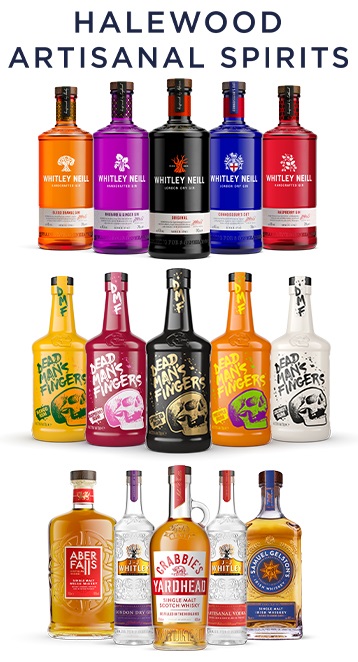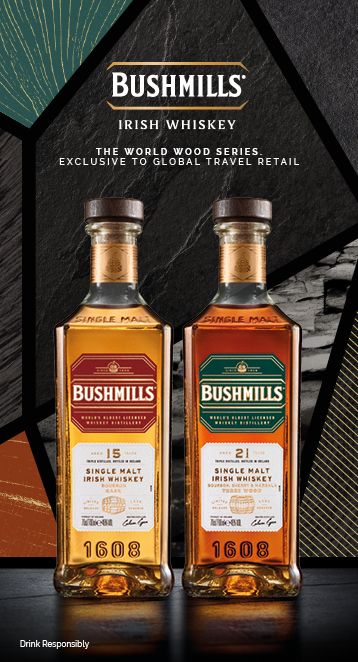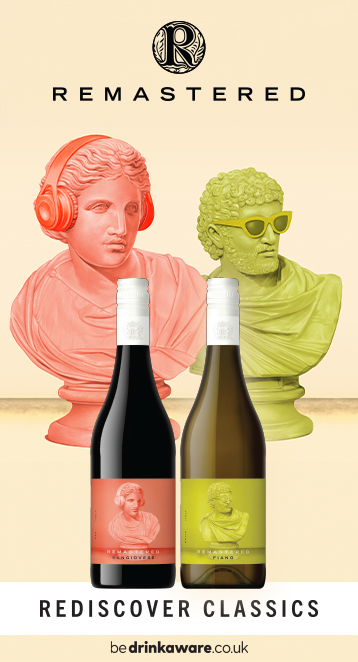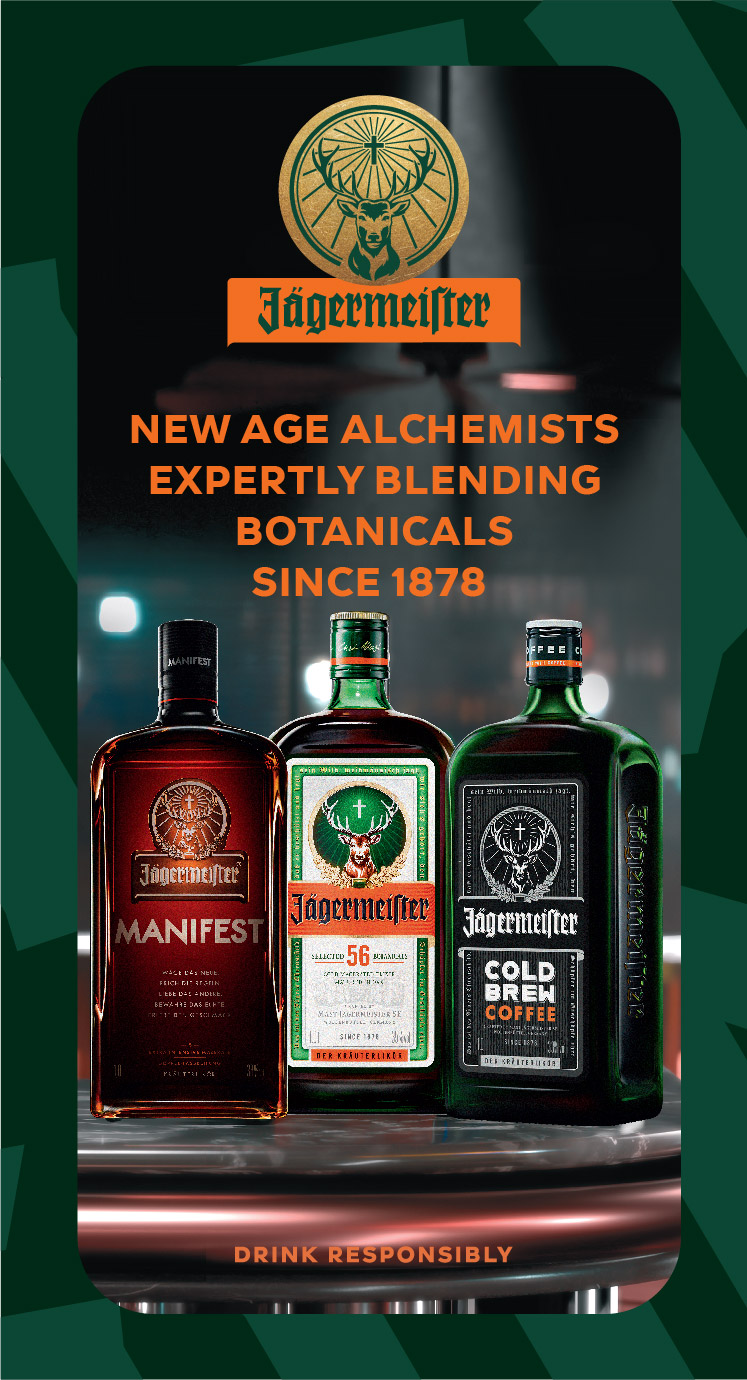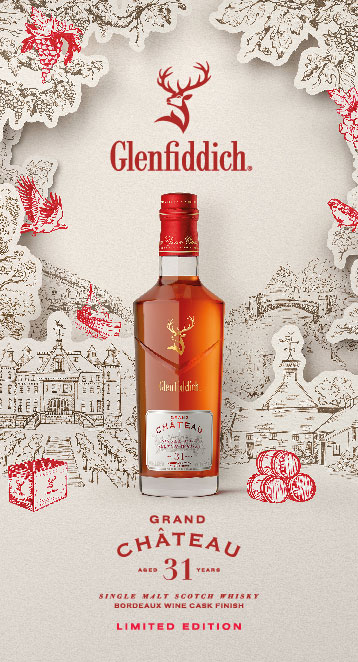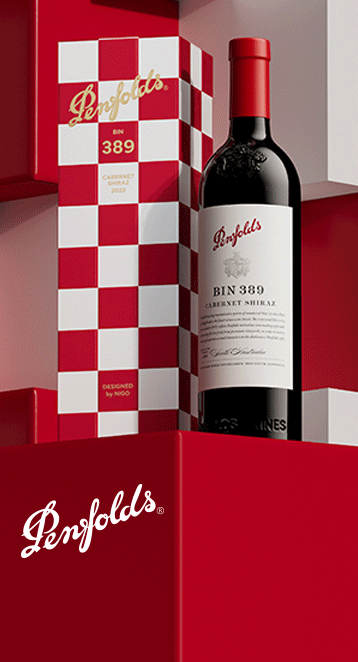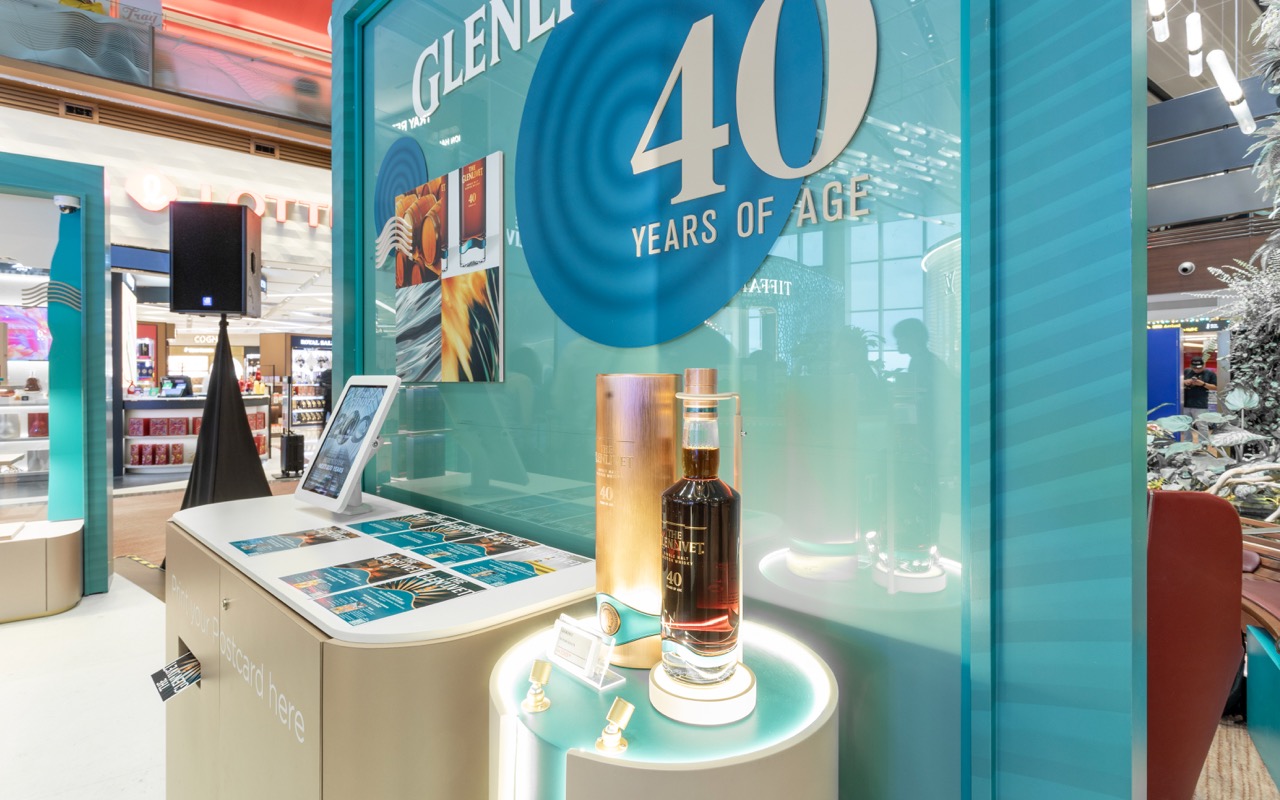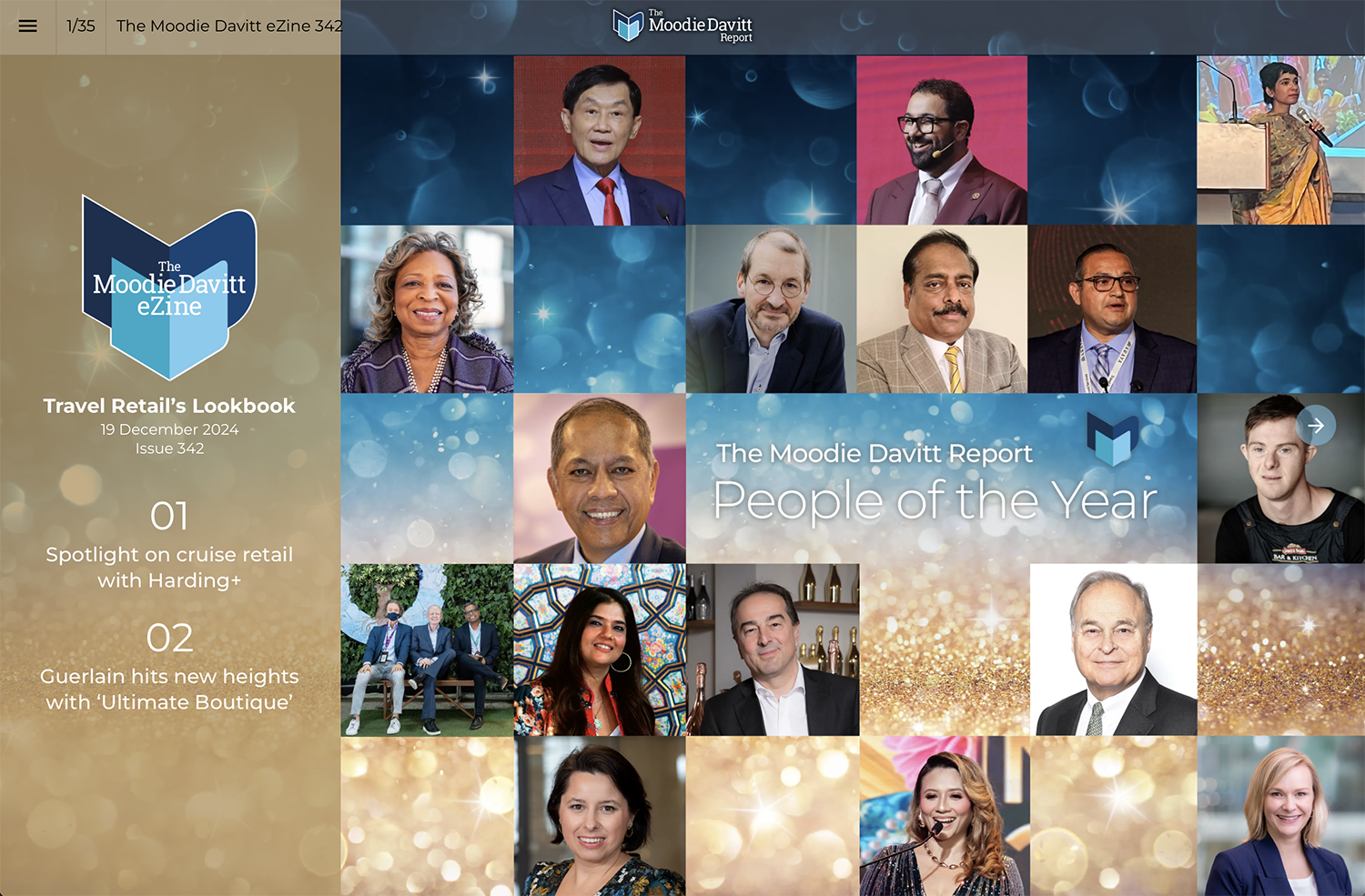Prologue: Sophie Cookson is a woman on a mission. Having enjoyed a highly successful early career with powerhouse companies including Danone, L’Oréal and Diageo (for just over seven years until this July), most recently as Johnnie Walker Global Head of Customer Marketing, Luxury and Premium, she has combined those learnings with an entrepreneurial instinct to create her own Dubai-based business, Craft & Culture,
Cookson describes the neatly named company, launched in August, as a brand incubator designed to help craft and artisan drinks brands access and thrive in Middle East markets, with travel retail a core focus.
In this Q&A with The Moodie Davitt Report Founder & Chairman Martin Moodie, Dubai-based Cookson shares the inspiration behind Craft & Culture and the exciting white space she sees for retailers and brands in the artisan spirits sector.
Martin Moodie: Sophie, I’m always fascinated by entrepreneurial stories. Tell me about yours.
Sophie Cookson: I’m British. I started my career in FMCG 13 years ago, working for companies including Danone and L’Oréal.
Seven years ago, I made the leap out of my home market to the UAE to work in the Gulf region. I was really excited to come here. I personally love this part of the world. There’s so much opportunity both professionally and personally. At one point we considered going back to Europe, but we missed the wealth of untapped opportunity in the Middle East, so we made a commitment to settle down here and make the UAE our home.
During my time here, I worked with Diageo in various roles within the liquor space and built a strong network. I did a lot of work on the domestic Gulf markets, for which Diageo’s distributor was African & Eastern (A&E), so I developed strong ties with them.
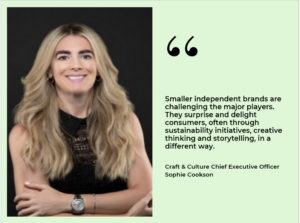
About Craft & CultureCraft & Culture is a gateway incubator for liquor brands seeking access to Middle East markets. It offers a holistic, turnkey service, from route-to-market services through to converting the shopper at the moment of choice. The company only works with brands it believes in, involving a shared passion for the product, brand ethics and founder vision.
Contact: Email: sophie@craftculture.xyz Web: Craftculture.xyz Instagram: https://www.instagram.com/craftculture_uae/ |
Later, I moved into travel retail, managing the relationship with Sharon Beecham [Purchasing Manager] at Dubai Duty Free (DDF). I navigated the business through COVID-19, which was quite an interesting time. Then I transitioned to managing travel retail in the India subcontinent, working with Delhi Duty Free, Flemingo, Adani (now Ospree Duty Free) and GMR, among others.
That was brilliant. Those were all commercial roles, but I later made a strategic move into more of a pure marketing role. I went into the Johnnie Walker global brand team to build up my marketing muscle [as Global Head of Customer Marketing, Luxury and Premium].
After an amazing career at Diageo, I decided earlier this year to cut ties, but on very good terms, and pursue the really big opportunity I saw in this market.
I felt there were white spaces which I wanted to capitalise on and the only way to address them was by doing it on my own. Because I don’t believe anyone else is doing what I’m doing. That’s how Craft & Culture was born.

So tell us about those white spaces and how Craft & Culture plans to fill them.
I work with my business partner, who is also my life partner. We have an importation licence, which allows us to bring alcohol into the UAE free zone and create a strategic, regional hub for brands.
This is very appealing to a lot of brands, because many of them want to position their stock in this region. With changing consumer habits in the US and Asia, growth in those mature markets is harder to come by.
As a result, brands are increasingly investing in this region, especially where you’ve got India next door, with huge growth potential, as well as Africa, an emerging market.
Without much effort and pushing too hard, we’ve already had several brands approach us for support in entering the region. I know my customers and distributors really well, like Truebell Marketing & Trading and MMI, from my previous experience.
I’ve noticed a number of issues here, some of which may be specific to this region. First, for consumers, I don’t think the range and choice are as good as in other markets. Some categories are underrepresented – not just in domestic retail, but also in travel retail. In domestic, there’s certainly a big lack of range.
The second issue is for distributors and retailers, such as DDF for example, they have seen the emergence of small, medium-sized, and independent brands – the craft and artisan brands.
I really love that. A brand such as Johnnie Walker is always going to be the biggest for Ramesh [Cidambi, Managing Director] and Sharon of DDF. But smaller independent brands are challenging the major players. They surprise and delight consumers, often through sustainability initiatives, creative thinking and storytelling, in a different way.
What’s happening as a result of that is a lot of different brands are coming to Customers and Distributors asking for listings, asking for help. But the challenge is that they can’t handle the volume of suppliers seeking listings every day, even though many of these brands may offer great opportunities for them.
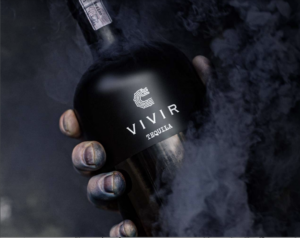
At Craft & Culture we are trying to build an incubator for brands, identifying incremental white spaces to grow the category.
So when I have conversations with DDF or India Travel Retail whom I’ve maintained great relationships with from my Diageo days, I can present them with a suite of small-to-medium brands all at once, who maybe they don’t have time for ten separate meetings with.
They can have a single conversation with me about a whole portfolio of brands, while I’m also trying to solve some of their problems at the same time.
Further, for the successful brands that do get listing with distributors or customers, they usually don’t have the ‘feet on the ground’ to build face to face relationships and are trying to run the business from overseas.
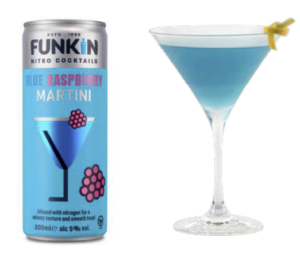 Nor do they have the local knowledge to build locally relevant plans. Craft & Culture is physically present in the region with a combined 20 years’ regional experience, and so is here to plug this gap.
Nor do they have the local knowledge to build locally relevant plans. Craft & Culture is physically present in the region with a combined 20 years’ regional experience, and so is here to plug this gap.
One of the big issues in this market is that many big players, especially in travel retail, approach things from a brand-centric perspective. When I was at Diageo, it was all about how we could grow Johnnie Walker and get space for the brand.
But I don’t think enough people are focused on category growth in this region. That’s where I’m trying to come in — be the person representing small and medium brands as a portfolio, while also helping duty-free retailers identify white spaces that could be better leveraged for category growth, which aren’t currently being leveraged by the big players.
For example, with DDF at DXB Terminal 3 Arrivals, where a lot of people pick up liquor, there could be a really big opportunity there with ready-to-drink (RTD), which isn’t currently represented. I’m trying to help DDF build that category.
So when you develop a portfolio of quirky, interesting brands across different categories, you’re then seeking to place them within those categories, right? You’re not suggesting a dedicated incubator space?
Absolutely. Although I do think there could be an opportunity for retailers to create a dedicated zone — for example, a ready-to-drink or craft and artisan zone.
But I’m very data-driven, and I use IWSR data to guide our strategy. I look at pricing ladders for brand X and see if there are any gaps we can fill with incremental opportunities. It’s all about coexisting within categories alongside the big brands.
How far along are you in terms of working with brands?
We’ve moved really fast in just four months. It’s been a wild ride and we already have a portfolio of brands with agreements set up to import them directly, and build the brands in the region.
While we can’t clear into the domestic market because of licence restrictions, we can hold brands strategically within the free zone and sell them directly to Customers and Distributors in order to access the route to market, rather like a hub and spokes model. We are then the face of the brand in the region.
Some brands we’re working with include Funkin, the UK’s number-one canned cocktail brand, owned by A.G. Barr, which is a really big company.
It’s really cool because you open the product and it’s a nitro, so it’s like you have your own bartender to serve. All you need to do is pour it in a glass. We’re working with them as the exclusive importer for their brands and have been successful in getting the brand listed in Dubai mainland.
DDF is also very interested in stocking their products in T3 Arrivals, serving travellers who want to grab a drink to take straight to their hotel.
We’re also working with Nice Drinks, which is a big UK canned wine brand. It sells one can every three seconds in the UK, and is available on Virgin Atlantic and Wizz Air. Quite an interesting concept for airlines.
I see the RTD category as an exciting opportunity, which is why I’m working with quite a few brands in that sector.
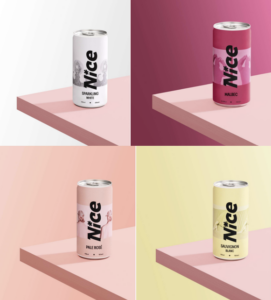
We’re also working with craft and artisan spirits brands which is our core business. Another example is Tidal Rum, already available on P&O Cruises and in World Duty Free. We are now the official importer for Tidal Rum in Middle East and I think they could do really well in Gulf and India travel retail, especially considering their existing presence in duty free.
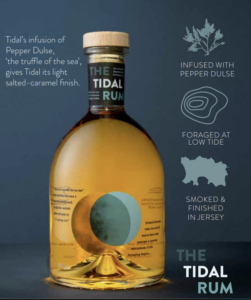 We’re also looking to introduce unique brands such as Vivir Tequila. I’m excited about that brand because it’s 100% agave and produced using traditional farming methods, unlike some larger tequila brands that have compromised on taste with economies of scale, including in the agave production process.
We’re also looking to introduce unique brands such as Vivir Tequila. I’m excited about that brand because it’s 100% agave and produced using traditional farming methods, unlike some larger tequila brands that have compromised on taste with economies of scale, including in the agave production process.
Vivir still uses traditional farming methods. So I really like that storytelling aspect behind these craft and artisan brands.
Within the different drinks sectors how do you manage selecting and balancing the range?
We need to be careful not to bring in competing brands within the portfolio. Right now, we’re focusing on working with brands that complement each other and also fit within my white spaces, so we can maintain that category-led approach.
As we scale, we’ll need to ensure we don’t end up with overlapping brands in the same space.
At the moment, the number of brands we have is limited because we are a small team and it is important to us to deliver a great service for our brands. But in the future we will scale and will be able to welcome more brands.
I’m sure you’ll find that balance. There are always nuances within categories, as you know.
I agree – it’s important that I find ways to solve the problems of the customer. My approach lies in that I don’t just want to sell the brands; I want to bring real solutions to problems.
While I may be the smallest fish in the pond right now against these big players, I’m also super agile. Compared to bigger companies where it might takes months and months to get things signed off, now I can just make it happen. I need to play to that strength, be a lot faster than the bigger players, and jump on trends quicker. ✈




